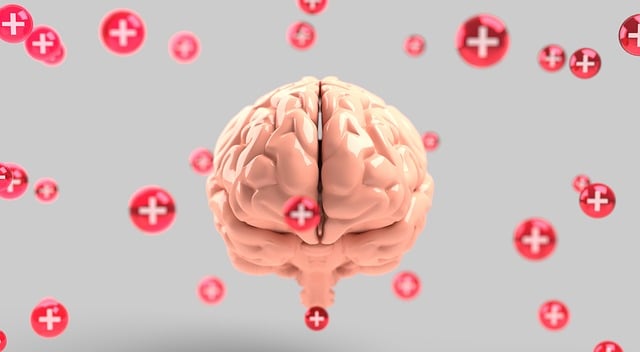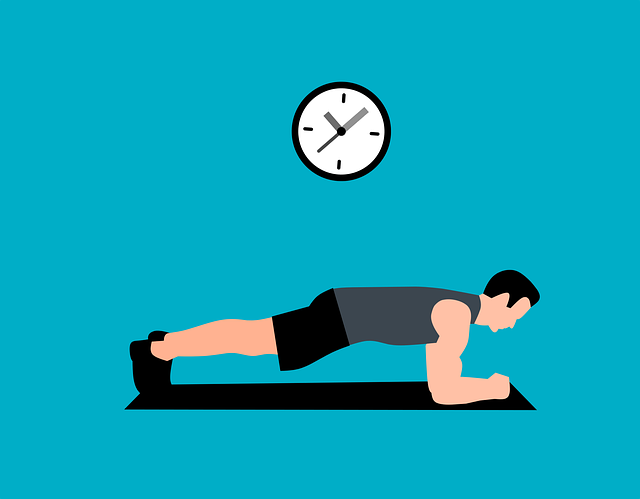Social connections are crucial for maintaining a healthy lifestyle as they positively impact physical and mental health. Balanced diet advice, regular exercise routines, staying hydrated, effective stress management through mindfulness practices, quality sleep, healthy meal planning, and portion control strategies all become more manageable with social support. Avoiding processed food contributes to overall well-being by reducing added sugars, unhealthy fats, and sodium. Social connections play a key role in promoting these habits, offering support for healthier choices, improved mental clarity, and enhanced overall health.
“Social connections are an often-overlooked yet vital pillar of healthy living. In today’s fast-paced world, building and maintaining meaningful relationships can significantly enhance our overall well-being. This article explores the power of social bonds and offers practical tips for a healthier lifestyle.
From adopting regular exercise routines and effective stress management techniques to mindfulness practices, quality sleep tips, and healthy meal planning advice, discover balanced diet strategies, portion control solutions, and staying hydrated tips to nurture both your body and mind.”
- The Power of Social Connections
- Lifestyle Habits for Well-being
- Nourishment and Hydration Strategies
- Mindfulness, Sleep, and Stress Reduction
The Power of Social Connections

Social connections play a pivotal role in fostering a healthy lifestyle. Humans are inherently social beings, and building strong relationships can significantly enhance our overall well-being. Engaging with others offers numerous benefits that positively impact various aspects of health, from physical to mental. Studies have shown that individuals with robust social networks tend to lead happier and longer lives.
When incorporated into your daily routine, tips for a healthier lifestyle such as balanced diet advice, regular exercise routines, staying hydrated tips, effective stress management strategies, mindfulness practices, quality sleep tips, healthy meal planning, and portion control can be more easily achieved through social support. For example, sharing meals with friends or family promotes mindful eating habits while providing an opportunity to de-stress and connect. Similarly, engaging in physical activities with others encourages accountability, makes exercise more enjoyable, and strengthens bonds, creating a supportive environment for adopting sustainable healthy lifestyle choices, including avoiding processed food.
Lifestyle Habits for Well-being

Maintaining a healthy lifestyle involves cultivating good habits that nurture both physical and mental well-being. One of the cornerstones of this is adopting a balanced diet advice that includes plenty of fruits, vegetables, whole grains, lean proteins, and healthy fats. Regular exercise routines are also essential; aim for at least 150 minutes of moderate aerobic activity or 75 minutes of vigorous activity each week, along with muscle-strengthening exercises on two or more days.
Beyond physical activities, incorporating staying hydrated tips, effective stress management techniques like mindfulness practices, and quality sleep tips is vital. Mindfulness can help reduce stress levels and improve focus, while quality sleep (7-9 hours for most adults) is crucial for recovery and cognitive function. Healthy meal planning involves preparing meals with whole ingredients and controlling portions to avoid overeating. Similarly, avoiding processed food can significantly impact overall health by reducing the intake of added sugars, unhealthy fats, and sodium.
Nourishment and Hydration Strategies

Maintaining a healthy lifestyle involves more than just physical activity; it’s equally crucial to consider your nutritional habits and hydration levels. Adopting effective strategies for nourishment and hydration can significantly enhance your overall well-being. Start by incorporating balanced diet advice, focusing on whole foods rich in vitamins, minerals, and fiber. A diverse plate filled with fruits, vegetables, lean proteins, and whole grains is key to a healthy meal planning approach.
Additionally, regular exercise routines and staying hydrated tips should be integral parts of your daily routine. Ensure you’re getting enough quality sleep, as it’s essential for recovery and effective stress management. Implement mindfulness practices to reduce anxiety and improve mental clarity. Portion control strategies can also help prevent overeating, especially when avoiding processed foods that are often high in sugar, sodium, and unhealthy fats.
Mindfulness, Sleep, and Stress Reduction

Social connections play a vital role in fostering a healthy lifestyle, providing a support system that can significantly impact our overall well-being. Beyond social interactions, certain practices can enhance our daily lives and contribute to a more balanced and serene existence. Mindfulness, for instance, is a powerful tool to stay present, reducing stress and improving mental clarity. Incorporating mindfulness practices such as meditation or mindful eating can help individuals make conscious choices about their diet, leading to healthier meal planning and portion control strategies.
Additionally, prioritizing quality sleep is essential for maintaining optimal health. Social connections can indirectly contribute to better sleep habits through fostering a sense of belonging and community. Effective stress management techniques, often facilitated by social groups or support networks, can also enhance overall well-being. This includes regular exercise routines, staying hydrated tips, and avoiding processed foods, all of which are easier to achieve when surrounded by like-minded individuals committed to tips for a healthier lifestyle.
Social connections are a powerful tool in our pursuit of a healthier lifestyle. By fostering meaningful relationships and engaging in social activities, we can significantly improve our overall well-being. Incorporating regular exercise routines, balanced diet advice, and staying hydrated tips alongside effective stress management techniques like mindfulness practices and quality sleep tips is key. Remember, healthy meal planning with portion control strategies and avoiding processed food are essential for a truly balanced diet. These combined efforts create a holistic approach to enhancing our lives, making each day a step towards optimal health and happiness.
